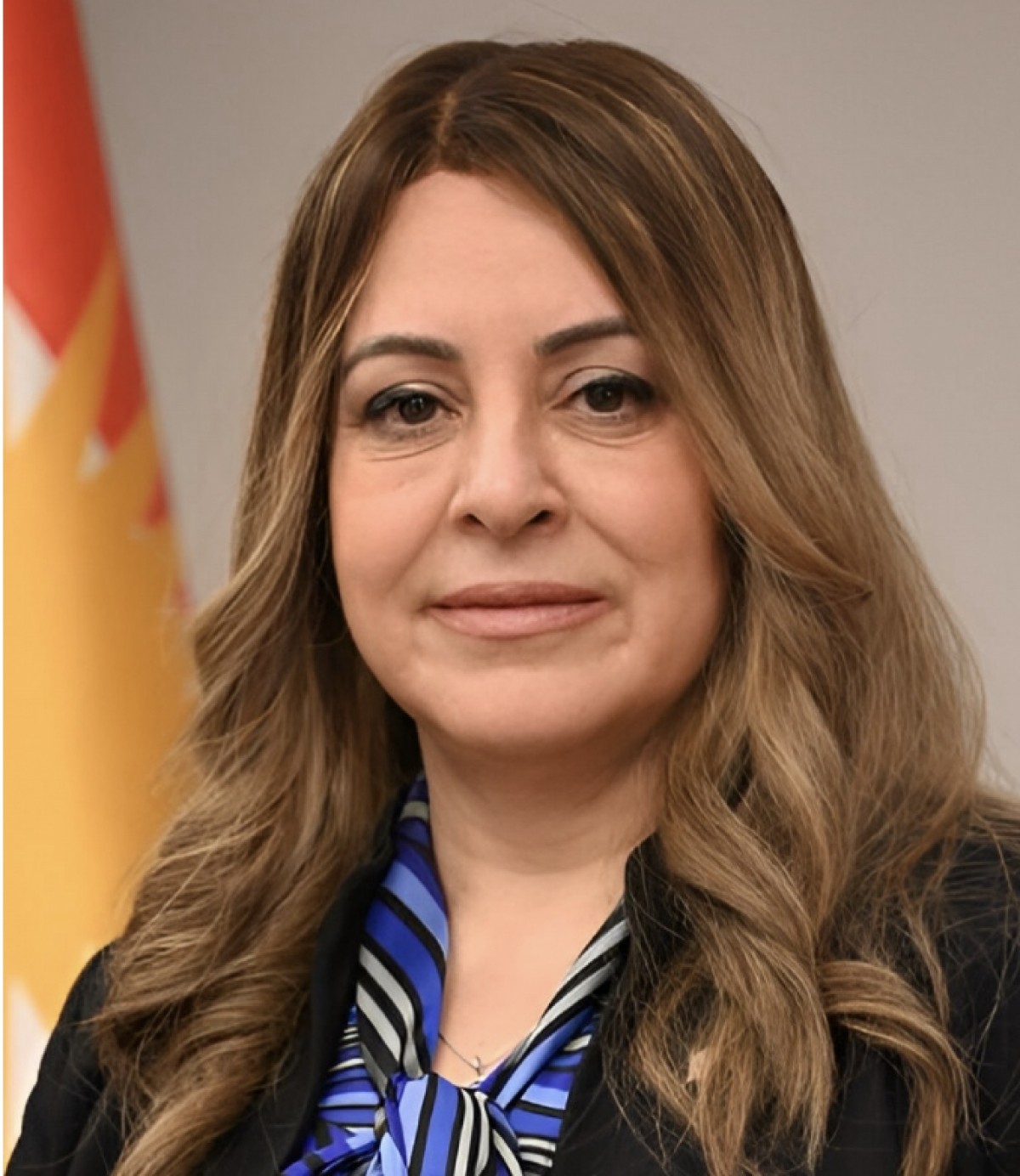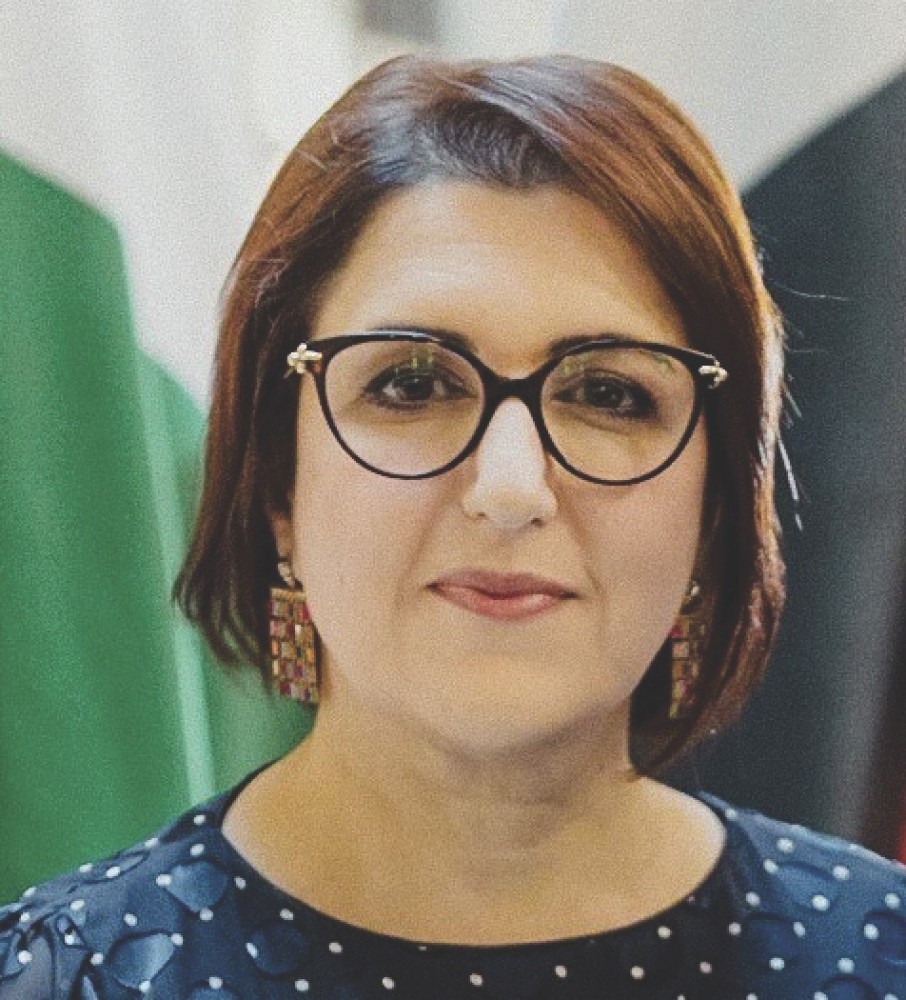The long struggle of the Kurdish people for self-rule yielded a significant achievement in 1992 with the formation of the Kurdistan Regional Government (KRG) in the Kurdistan Region of Iraq (KRI). U.S. policy played a central role in the struggle by investing in a model of governance that is Western-oriented, moderate, economically responsible, and pragmatic.
The result was decades of prosperity, stability, and positive relations with the international community, critically so with its northern neighbor Turkey. Ironically, U.S. policy now threatens to undermine that accomplishment by promoting the rise of a very different model and remaining passive, as antagonistic actors in Baghdad and Tehran seek to destabilize the KRI.
The new U.S. approach involves militarily strengthening the People's Defense Units (YPG), which currently operates in the Kurdish-majority regions of Syria. This is evidenced by U.S. military officials escorting YPG leaders from Syria to Iraq and beyond, and sustaining massive funding and logistical support to the YPG well after the fall of ISIS in Syria. This sustained and regionally expanding military support could serve to favor Iran and antagonize Turkey, which views the YPG as an extension of the Kurdistan Workers’ Party (PKK), itself recognized as a terrorist group by the United States, Turkey and a number of European countries.
The new model also involves pushing for concessions from the successful existing model of the KRG in Erbil, which currently enjoys support from a coalition consisting of the Kurdistan Democratic Party (KDP), Patriotic Union of Kurdistan (PUK), and the Gorran Movement, to other groups in the name of Kurdish unity. The search for unity is grounded in good intentions: to decrease strife in majority-Kurdish areas, hasten reform, and strengthen Kurdish negotiating positions in relation to Baghdad or other players.
Yet the manner of progress towards unity matters greatly. The successful KRG formula of economic openness, effective security control, Western investment, and positive, pragmatic relations with Ankara must provide the basic framework. Support for other, more controversial groups threatens to make the KRI more dependent on Baghdad and Tehran, which undermines the successes of the KRG leadership.
Over the past decade, the PUK has managed the eastern half of the KRI. However, as the United States scales back its presence in the region, Iran might seek to widen its own influence, given the shared border. U.S. policy at present calls for taking the keys of Kurdish autonomy from its only successful practitioner and handing them to groups that have not demonstrated that they share the aims of the KRG formula described above.
Strengthening Kurdish groups with differing aims and methods than the KRG while demanding that Erbil reconcile with those antagonistic partners has contributed to a growing sense of frustration and anger in Erbil. While the Barzani-led KDP favors unity theoretically and rhetorically, experience inclines it not to approach the process naively.
Some in Washington call for an end to U.S. assistance to Erbil, though none yet argue for an end to military subsidies to the YPG. In fact, Washington seems inclined to speak of “the Kurds” when it is referring to the YPG, as if they, and not the KRG, are long-time political allies of the United States.
During the Syrian Civil War that began in 2011, Syria President Bashar al-Assad granted wide latitude to the YPG to fight both ISIS and anti-Assad opposition groups. This resulted in the expansion of YPG control over Kurdish areas in northern Syria, the end of a ceasefire with Turkey, and a U.S. decision to instrumentalize this capable and confident force in lieu of a major U.S. deployment in Syria. Senior U.S. officials asserted that the relationship would be “temporary, tactical, and transactional.” Nearly a decade later and given the expanding political and military support for the YPG across the region, the assertion is unconvincing.
One key question remains: has the YPG become less radical, more legitimate, or more inclined to collaborate with political rivals and neighboring states? If either had occurred, it might indicate that U.S. attempts to promote them regionally were a reward for moderation and adaptation. Yet neither appears to be true. In fact, continued U.S. support threatens KRG-Turkish cooperation. While Kurdish unity is important, it should be promoted through moderate, political means rather than an ideologically radical movement that the KRI’s northern neighbor Turkey deems as dangerous.
The Kurdish issue varies across different regions. Kurds in Iraq have a unique history and a long-standing struggle that differs from Kurdish aspirations in Syria, Iran, and Turkey. The United States should thus recognize these distinctions and tailor its strategy accordingly, while also showing respect for these differences.
It is not clear that U.S. officials appreciate the significant differences of ideology, capability, legitimacy, and viability that should inform such a process. Further, the United States seems to be driving a convergence between certain Kurdish groups and Iran that threatens to spill over into regional dynamics and could undermine strong ties between Erbil and Ankara. Iran is pursuing a clear game to divide the Kurds, weaken the pro-Western KRG, and re-establish proxy control over northern Iraq; the new U.S. model has no answer for this.
The ultimate context for this intra-Kurdish process – with a poorly-informed, but highly influential U.S. role – is the escalating campaign against Kurdish autonomy by Baghdad and Tehran. This gambit is part of a very old game played by regional states to weaken Kurdish power centers when they prosper through ties to other regional states and extra-regional powers.
Empowered by the cutoff of Kurdish oil exports and budget revenue, the anti-KRG game has reached a level of threat sufficient to prompt a personal letter from Prime Minister Masrour Barzani to U.S. President Joe Biden, warning of the possible collapse of the KRG, which would strengthen Iran and perhaps even Russia as they rush to fill the resulting power vacuum. The United States needs a more sophisticated political strategy to oppose this, one that goes beyond the imperative of unity at any cost and extends to strengthening the core of Kurdish autonomy against external threats.
Rich Outzen, a retired colonel with 30 years of U.S. Army service, now serves as a geopolitical consultant. He's also a non-resident Senior Fellow at the Atlantic Council and the Jamestown Foundation, focusing on Middle East and Central Asia policy and strategy

